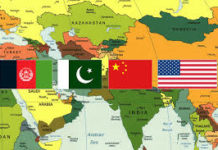Web Desk
UN human rights experts have welcomed a decision by the Supreme Court of Pakistan to ban the execution of defendants with mental health conditions.
“We applaud the Supreme Court for recognising that executing such individuals ‘does not meet the ends of justice’,” said the experts.
On 10 February 2020, the Supreme Court held that where a medical board certifies that the defendant is no longer able to appreciate the rationale behind their death sentence, they cannot be executed.
The decision also commuted the death sentence for Ms. Kanizan Bibi and Mr. Imdad Ali to life in prison, and ordered a fresh mercy petition be prepared for Mr. Ghulam Abbas, whose previous petition had been dismissed.
“We welcome the positive development for these individuals, all of whom have been on death row for more than a decade,” said the experts, noting they had previously written to the Government of Pakistan conveying their concerns about these cases.**
“We urge the President to grant mercy to Ghulam Abbas. We also call on Pakistan authorities to fully consider the defendants’ mental health and other relevant issues when reviewing mercy petitions,” they said.
The Supreme Court’s decision additionally made important specific directives to the federal and provisional authorities of Pakistan. These include to revise relevant rules, laws and prison manuals in light of the judgement, to create medical boards to conduct assessments comprising of qualified mental health professionals, to establish high security forensic mental health facilities and to launch training programmes on mental health for a range of criminal justice and legal professionals.
“We call on the relevant authorities in Pakistan to promptly implement all aspects of this important ruling,” said the experts.
“We also call on the Government of Pakistan to build on the Supreme Court’s crucial decision and to revisit the death penalty more generally,” adding Pakistan should consider re-establishing a moratorium on the death penalty, established in 2008 but ended in 2014.
As steps in that direction, the Pakistan authorities should ensure that the death penalty is never carried out against individuals who were children at the time of the offence, that, in other situations, it is strictly limited to cases involving intentional killing, in line with international standards and that under no circumstances should it be applied to allegations of blasphemy, they said.
The experts also called on the Governments and judiciaries of other states that continue to execute individuals with psychosocial disabilities to follow the example set by the Supreme Court of Pakistan.















